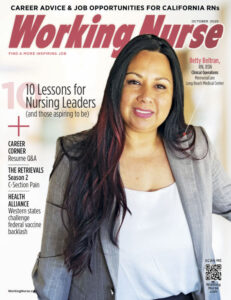Nursing & Healthcare News
Controversial Hospital Star Rating System Continues
CMS metrics called inaccurate and misleadin

Despite the urging of hospital associations, the Centers for Medicare & Medicaid Services (CMS) are going forward with their controversial Hospital Compare ratings for 2020, delaying any major changes to the methodology for another year.
Ill-Starred?
Launched back in 2005 and published on Medicare.gov, Hospital Compare assigns hospitals a single overall star rating, from one to five stars, based on quality reporting measures. Hospitals and hospital associations have long criticized the way CMS uses those metrics to calculate the ratings, which the American Hospital Association (AHA) has called “inaccurate” and “misleading.”

























